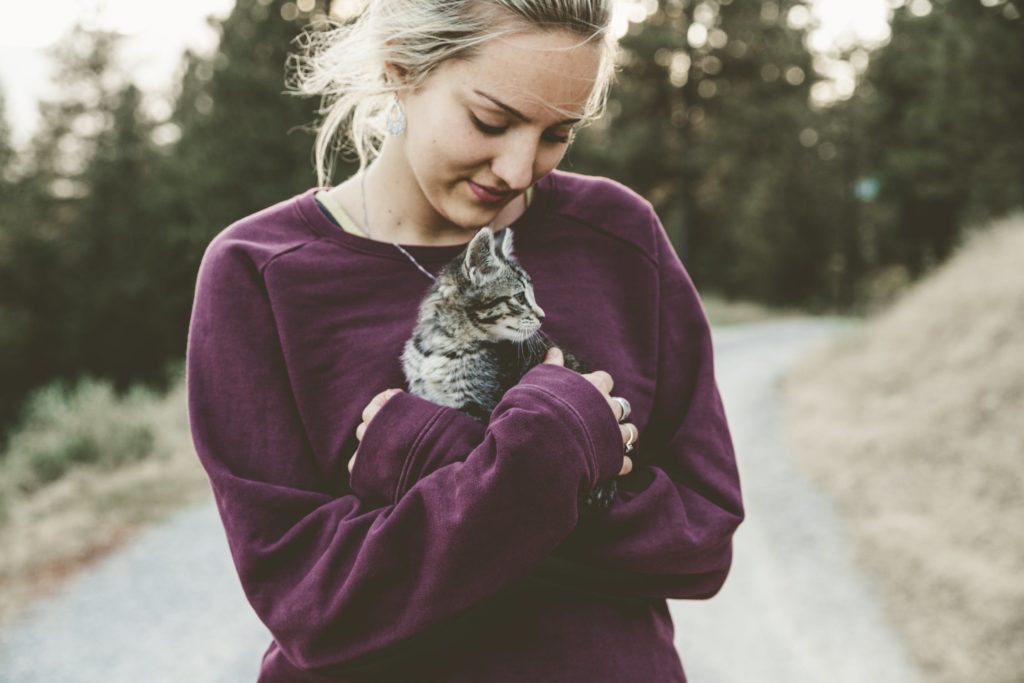
Casually picking up a pack of spot-on treatment for dogs for your pet cat from supermarket shelves just because you couldn’t find the ones for cats can prove to be a costly mistake. It’s a mistake that has taken the lives of hundreds of cats. In most of these cases, pet owners ran out of cat flea medications and they accidentally used a spray or spot-on ampule meant for dogs. This happens because cats have a metabolic deficiency that makes them highly vulnerable to certain types of pesticides that are commonly used to make dog flea medication. The only way to keep your cat safe is to read the product label before buying and applying any product that contains pesticides. If the product label doesn’t specifically mention if it’s for dogs or cats, it’s best to look for an alternative. Following are a list of ingredients found in dog flea meds that should never be used on cats.
Tea Tree Oil: How can something natural be harmful? By that logic cobra venom, a completely naturally occuring chemical, should be completely safe for everyone. Be smart, don’t fall prey to labels such as ‘herbal’ and ‘natural’. Some manufacturers sell 100% tea tree oil. When properly diluted tea tree oil can kill fleas and ticks but when used raw, this can lead to dangerous side effects in both dogs and cats. Even though it sounds safe, pure tea tree oil is a natural schedule 6 toxin. Products often lack the proper instructions, which leads cat owners to apply undiluted tea tree oil on their pets. This can lead to some serious health issues and even cause death due to toxicosis. Even when properly diluted, pets should be monitored after the application of tea tree oil. Cats, for example, are incessant self-groomers and there have been cases where they accidentally ingested the tea tree oil following a topical application. Ingestion of tea tree oil can lead to coma, tremors, seizures, loss of consciousness, and even death.
Citrus Oil or Extract: This is another example of how a natural ingredient can turn out to be highly toxic. Citrus oil extract is often present in shampoos and sprays. The trouble with citrus oil is that even in small doses it can potentially kill a healthy, adult cat. Make sure to keep a look out for this ingredient if you are buying shampoos, dips, and other pet products for your cat.
Pyrethrins: This a pesticide that’s often used to make dog flea medications. However, when used on cats this ingredient is a killer. Extracted from a flower, pyrethrins is less potent than it’s synthetic version, pyrethroid. While cats are more sensitive to pyrethroid, picking up pyrethrins to treat a flea problem in cats can be a deadly mistake. Be safe, keep a look out for this ingredient.
Organophosphates: From collars to dips, this is a group of chemicals that’s often used in making a lot of anti-flea products for dogs. It’s commonly listed as fenton, malathion, coumaphos, chlorpyrifos, diazinon, fampfhur, cyothioate, and terbufos. Organophosphates are also commonly found in yard and home flea treatment products.
Pyrethroids: A more potent variant, pyrethroids are synthetically produced pyrethrins. It’s often labeled as allethrin, deltamethrin, cypermethrin, permethrin, and cyphenothrin. Permethrin, in particular, is used in a lot of spot-on treatment solutions for dogs, so be careful.
